| DBS with Rechargable Implant | USD $ 28,000 |
| DBS with non-rechargable Implant | USD $ 18,000 |
Deep brain stimulation is a specialized treatment used for the treatment of movement disorders such as dystonia, Parkinson’s disease, and essential tremors. Recently, the use of this procedure has been shown to be highly effective in the treatment of obsessive-compulsive disorder. It is a neurosurgical procedure that involves the placement of a device called deep brain stimulator, which sends signals to specific areas of the brain to stop the symptoms associated with a movement disorder.
Deep brain stimulation is conducted across all major neurosurgery hospitals. This is a highly sensitive and a critical procedure that involves the placement of electrodes within specific areas of the brain that trigger symptoms associated with the motor disorder. This is the reason why this procedure must be conducted by only an experienced and skilled surgeon. India is known for its brigade of highly qualified brain surgeons who are mostly educated from the best medical universities in the world.
Every so often, Deep Brain Stimulation is regarded as the Pacemaker for the brain due to its similar functionalities with the Pacemaker which is used for heart-related problems. Deep Brain Stimulation is mostly operated on patients who find it difficult to control their disease through medication.
| Expense Item | Cost Starting from ( in USD) |
| Pre-operative evaluation | $ 12,500 |
| DBS Device (Activa-PC) | $ 1800 - $ 3000 |
| Operation charges (Hospital) | $ 1500 - $ 3000 |
| Doctor’s charges (Neurologist, Neurosurgeon etc) | $ 2000 - $ 2500 |
| Hospital stay including medications | $ 2000 - $ 3000 |
People suffering from Parkinson’s disease show symptoms of tremor, stiffness, rigidity, slowed movement, etc. Deep Brain Stimulation helps ease tremor and improves the stiffness and slowness in a remarkable manner. Even the tremor caused due to Essential Tremor simply gets wiped out with DBS. Dystonia patients get relief with the help of DBS as it relaxes muscles and improves irregular posture which is caused by muscle contraction. Taking everything into account, Deep Brain Stimulation helps enrich the quality of life of its patients.
Following is the cost comparison of Deep Brain Stimulation in India as compared to some of the western countries and Europe:
| City | Minimum Cost (USD) | Minimum Cost (INR) | Maximum Cost (USD) | Maximum Cost (INR) |
|---|---|---|---|---|
| Ghaziabad | USD 22500 | 1870875 | USD 36000 | 2993400 |
| Hyderabad | USD 25000 | 2078750 | USD 40000 | 3326000 |
| Faridabad | USD 22500 | 1870875 | USD 36000 | 2993400 |
| Kolkata | USD 25000 | 2078750 | USD 40000 | 3326000 |
| Gurgaon | USD 25000 | 2078750 | USD 40000 | 3326000 |
| Mohali | USD 22500 | 1870875 | USD 36000 | 2993400 |
| Chennai | USD 25000 | 2078750 | USD 40000 | 3326000 |
| Ahmedabad | USD 22500 | 1870875 | USD 36000 | 2993400 |
| Country | Minimum Cost | Minimum Local Currency | Maximum Cost | Maximum Local Currency |
|---|---|---|---|---|
| India | USD 25000 | INR 2078750 | USD 40000 | INR 3326000 |
| Thailand | USD 30000 | THB 1069500 | USD 37000 | THB 1319050 |
| Turkey | USD 21000 | TRY 632940 | USD 28000 | TRY 843920 |
Treatment cost
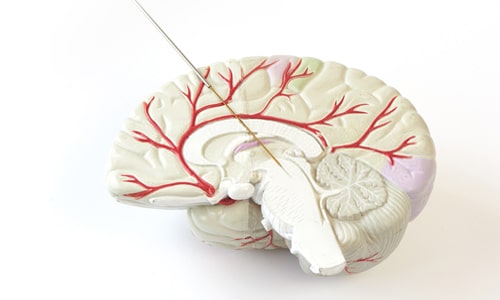
Gurgaon, India
USD 26250 USD 30000
Verfifed
MediGence is offering immense facilities for your medical journey such as:
We provide packages at economical prices with a number of additional benefits which make it a better opportunity than spending actual hospital costs with singular benefits. A device which transmits electrical signals to those areas of the brain which are the source of various body movements is implanted and this process is known as Deep Brain Stimulation. It involves placing electrodes deep in the brain and connecting them with a stimulator device. Deep Brain Stimulation helps with symptoms that are caused by Parkinson�s disease, dystonia, or essential tremor. Rechargeable batteries in the implant have a life of 15 to 25 years., All inclusive packages are available with us for all your needs regarding Deep Brain Stimulation to be done in Artemis Health Institute, India.
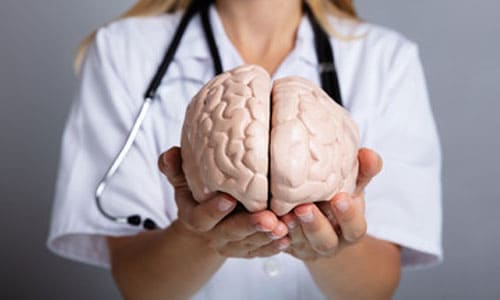
Istanbul, Turkey
USD 25000 USD 30000
Verfifed
We provide numerous services for your medical journey, including:
We provide packages at economical prices with a number of additional benefits which make it a better opportunity than spending actual hospital costs with singular benefits. A device that transmits electrical signals to those areas of the brain which are the source of various body movements is implanted and this process is known as Deep Brain Stimulation. It involves placing electrodes deep in the brain and connecting them with a stimulator device. Deep Brain Stimulation helps with symptoms that are caused by Parkinson's disease, dystonia, or essential tremor. Rechargeable batteries in the implant have a life of 15 to 25 years., All inclusive packages are available with us for all your needs regarding Deep Brain Stimulation to be done in NPISTANBUL Brain Hospital, Turkey.

Types of Deep Brain Stimulation in Sarvodaya Hospital and Research Centre and its associated cost
| Treatment Option | Approximate Cost Range (USD) | Approximate Cost Range (INR) |
|---|---|---|
| DBS (Overall) | 15291 - 35670 | 1245018 - 2919092 |
| Subthalamic Nucleus (STN) | 10130 - 25278 | 830608 - 2072111 |
| Globus Pallidus Internus (GPi) | 12172 - 28313 | 1003631 - 2333006 |
| Ventral Intermediate Nucleus (VIM) | 15300 - 35399 | 1244654 - 2926414 |
DOCTORS IN 14 SPECIALITIES
FACILITIES & AMENITIES
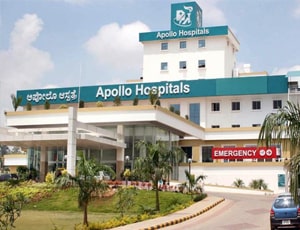
Types of Deep Brain Stimulation in Apollo Hospitals Bannerghatta and its associated cost
| Treatment Option | Approximate Cost Range (USD) | Approximate Cost Range (INR) |
|---|---|---|
| DBS (Overall) | 16935 - 38648 | 1402918 - 3193966 |
| Subthalamic Nucleus (STN) | 11470 - 28029 | 910383 - 2266870 |
| Globus Pallidus Internus (GPi) | 13530 - 31821 | 1106911 - 2570686 |
| Ventral Intermediate Nucleus (VIM) | 16695 - 39172 | 1414167 - 3299803 |
DOCTORS IN 13 SPECIALITIES
FACILITIES & AMENITIES
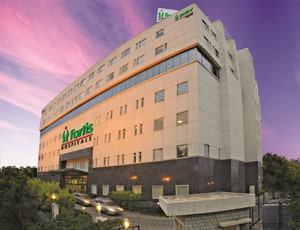
Types of Deep Brain Stimulation in Fortis Hospital and its associated cost
| Treatment Option | Approximate Cost Range (USD) | Approximate Cost Range (INR) |
|---|---|---|
| DBS (Overall) | 15161 - 35527 | 1245820 - 2918821 |
| Subthalamic Nucleus (STN) | 10136 - 25463 | 834068 - 2071983 |
| Globus Pallidus Internus (GPi) | 12172 - 28450 | 996865 - 2327995 |
| Ventral Intermediate Nucleus (VIM) | 15187 - 35374 | 1247665 - 2915216 |
DOCTORS IN 12 SPECIALITIES
FACILITIES & AMENITIES

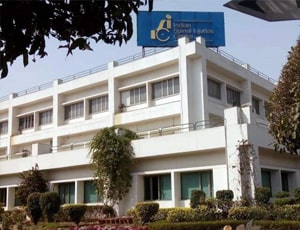
Types of Deep Brain Stimulation in Indian Spinal Injuries Centre and its associated cost
| Treatment Option | Approximate Cost Range (USD) | Approximate Cost Range (INR) |
|---|---|---|
| DBS (Overall) | 15229 - 35624 | 1245269 - 2907011 |
| Subthalamic Nucleus (STN) | 10153 - 25417 | 832102 - 2073227 |
| Globus Pallidus Internus (GPi) | 12234 - 28335 | 999204 - 2322478 |
| Ventral Intermediate Nucleus (VIM) | 15236 - 35612 | 1246456 - 2926973 |
DOCTORS IN 2 SPECIALITIES
FACILITIES & AMENITIES
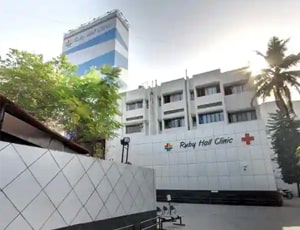
Types of Deep Brain Stimulation in Ruby Hall Clinic and its associated cost
| Treatment Option | Approximate Cost Range (USD) | Approximate Cost Range (INR) |
|---|---|---|
| DBS (Overall) | 13888 - 32691 | 1142975 - 2705099 |
| Subthalamic Nucleus (STN) | 9390 - 23268 | 766379 - 1909368 |
| Globus Pallidus Internus (GPi) | 11099 - 26519 | 913936 - 2134174 |
| Ventral Intermediate Nucleus (VIM) | 14157 - 33146 | 1164668 - 2720376 |
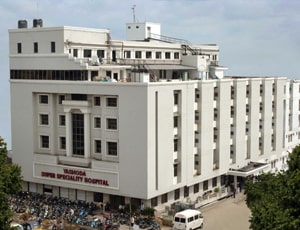
Types of Deep Brain Stimulation in Yashoda Hospital, Malakpet and its associated cost
| Treatment Option | Approximate Cost Range (USD) | Approximate Cost Range (INR) |
|---|---|---|
| DBS (Overall) | 15183 - 35502 | 1252760 - 2909140 |
| Subthalamic Nucleus (STN) | 10109 - 25300 | 833210 - 2084361 |
| Globus Pallidus Internus (GPi) | 12221 - 28410 | 998910 - 2330703 |
| Ventral Intermediate Nucleus (VIM) | 15249 - 35494 | 1252997 - 2906816 |
DOCTORS IN 10 SPECIALITIES
FACILITIES & AMENITIES
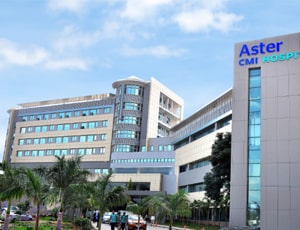
Types of Deep Brain Stimulation in Aster CMI Hospital and its associated cost
| Treatment Option | Approximate Cost Range (USD) | Approximate Cost Range (INR) |
|---|---|---|
| DBS (Overall) | 15293 - 35492 | 1247535 - 2911050 |
| Subthalamic Nucleus (STN) | 10176 - 25374 | 833371 - 2087123 |
| Globus Pallidus Internus (GPi) | 12230 - 28520 | 1002851 - 2333885 |
| Ventral Intermediate Nucleus (VIM) | 15209 - 35689 | 1247496 - 2901619 |
DOCTORS IN 13 SPECIALITIES
FACILITIES & AMENITIES
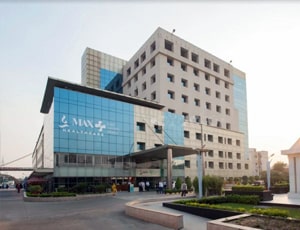
The cost for Deep Brain Stimulation ranges from USD 27380 - 30460 in Max Super Specialty Hospital, Vaishali
Max Super Specialty Hospital, Vaishali located in Ghaziabad, India is accredited by NABH, NABL. Also listed below are some of the most prominent infrastructural details:
DOCTORS IN 14 SPECIALITIES
FACILITIES & AMENITIES
Types of Deep Brain Stimulation in Neuraxis Care and Research Center, India and its associated cost
| Treatment Option | Approximate Cost Range (USD) | Approximate Cost Range (INR) |
|---|---|---|
| DBS (Overall) | 15183 - 35411 | 1254455 - 2911911 |
| Subthalamic Nucleus (STN) | 10150 - 25308 | 831704 - 2073193 |
| Globus Pallidus Internus (GPi) | 12223 - 28480 | 997039 - 2339170 |
| Ventral Intermediate Nucleus (VIM) | 15172 - 35689 | 1248219 - 2924199 |
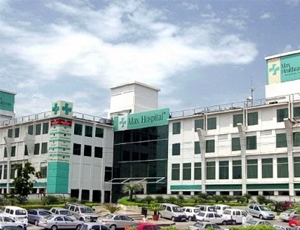
Max Hospital (Gurgaon branch), one of the top medical facilities in India, was established in 2007. Max Gurgaon Hospital is the first multi, super specialty tertiary care in the Location. Out of many other awards, the hospital also possesses the Express Healthcare Awards for Excellence in Healthcare. It is also certified to ISO 9001:2000 standards. The Institute of Minimal Access, Metabolic & Bariatric Surgery at Max Gurgaon has been designated as a Center of Excellence for providing cutting-edge Clinical Services and Surgical Training Programs for Abdominal Wall Hernia Surgery.
Over 5 lakh patients have been treated at the 92-bed Max Hospital Gurugram, which holds expertise in 35 specialized fields such as Cardiac Sciences, Minimal Access, Laparoscopic Surgery, Neurosciences, Urology, Orthopaedics, Aesthetics, Reconstructive Surgery, and Nephrology. The laboratories at Max Healthcare hospitals are accredited by NABH and NABL. It also provides hemodialysis for patients who have end-stage kidney disease and requires renal replacement therapy. Team of doctors and nurses at the hospital provides integrated medical care in a multi-disciplinary setting. As a result, it has received multiple awards and accreditations.
International patients have been treated impeccably here as all the nursing staff, shift doctors, and treating doctors are quite courteous and supportive towards the patients. There is no doubt that being in the hospital can make you feel at home.
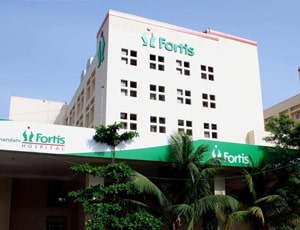
Types of Deep Brain Stimulation in Fortis Hiranandani Hospital and its associated cost
| Treatment Option | Approximate Cost Range (USD) | Approximate Cost Range (INR) |
|---|---|---|
| DBS (Overall) | 15208 - 35435 | 1247537 - 2926034 |
| Subthalamic Nucleus (STN) | 10128 - 25386 | 828377 - 2082426 |
| Globus Pallidus Internus (GPi) | 12143 - 28343 | 1001719 - 2327252 |
| Ventral Intermediate Nucleus (VIM) | 15287 - 35662 | 1248272 - 2920864 |
DOCTORS IN 13 SPECIALITIES
FACILITIES & AMENITIES
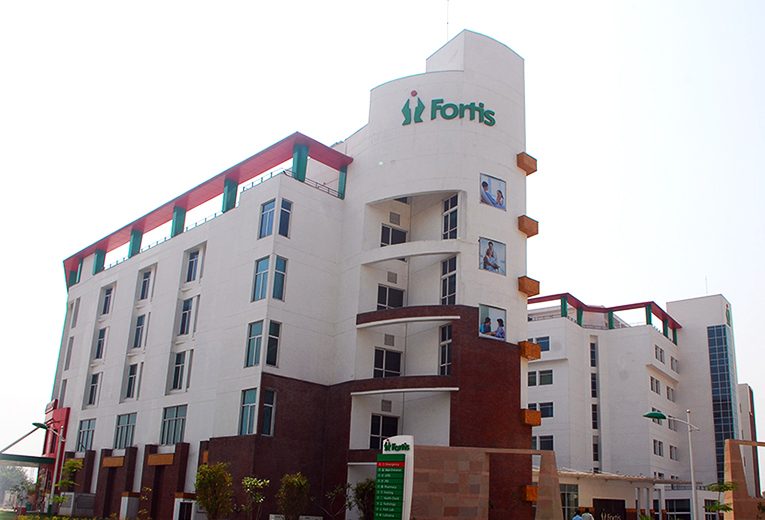
Types of Deep Brain Stimulation & Its Cost at Fortis Hospital, Shalimar Bagh
| Treatment Option | Approximate Cost Range (USD) | Approximate Cost Range (INR) |
|---|---|---|
| Overall DBS Surgery Cost | 40,000 - 50,000 | 3280000 - 4100000 |
| DBS Surgery (Single Electrode) | 20,000 - 25,000 | 1640000 - 2050000 |
| DBS Surgery (Dual Electrodes) | 25,000 - 30,000 | 2050000 - 2460000 |
Factors affecting Deep Brain Stimulation cost in Fortis Hospital, Shalimar Bagh
| Cost Factors | Cost Range (USD) | Cost Range (INR) |
|---|---|---|
| DBS Device and Implantation Cost | 10,000 - 15,000 | 820000 - 1230000 |
| Pre-operative Evaluation and Tests | 1,500 - 2,500 | 123000 - 205000 |
| Anesthesia Charges | 800 - 1,200 | 65600 - 98400 |
| Hospital Stay (per day) | 120 - 300 | 9840 - 24600 |
| Medications and Consumables | 1,500 - 2,500 | 123000 - 205000 |
| Physiotherapy and Rehabilitation | 50 - 200 per session | 4100 - 16400 (per session) |
| Follow-up Visits and Consultations | 150 - 250 per visit | 12300 - 20500 (per visit) |
DOCTORS IN 14 SPECIALITIES
FACILITIES & AMENITIES
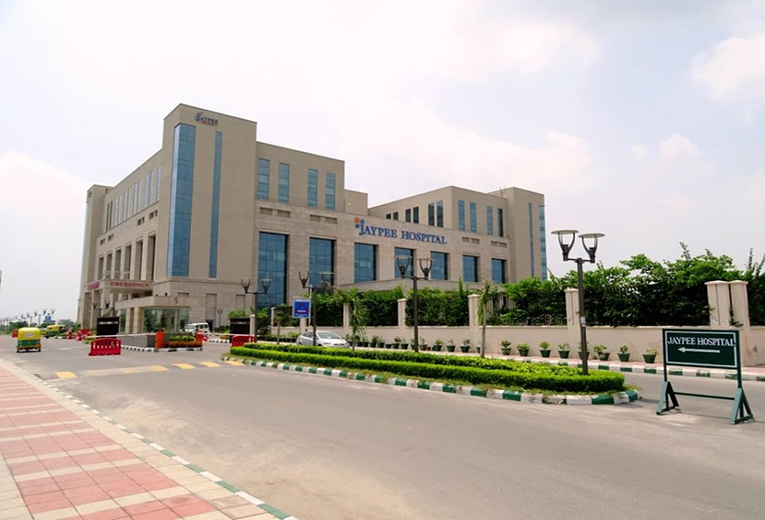
Types of Deep Brain Stimulation & Its Cost at Jaypee Hospital
| Treatment Option | Approximate Cost Range (USD) | Approximate Cost Range (INR) |
|---|---|---|
| Overall DBS Surgery Cost | 25,000 - 35,000 | 2050000 - 2870000 |
| DBS Surgery (Single Electrode) | 25,000 - 30,000 | 2050000 - 2460000 |
| DBS Surgery (Dual Electrodes) | 30,000 - 35,000 | 2460000 - 2870000 |
Factors affecting Deep Brain Stimulation cost in Jaypee Hospital
| Cost Factors | Cost Range (USD) | Cost Range (INR) |
|---|---|---|
| Surgeon's Fee | 2,000 - 4,000 | 164000 - 328000 |
| Anesthesia Charges | 500 - 1,000 | 41000 - 82000 |
| Hospital Room Charges | 150 - 270 | 12300 - 22140 |
| Operating Room Charges | 1,500 - 3,000 | 123000 - 246000 |
| DBS Device and Implantation | 10,000 - 15,000 | 820000 - 1230000 |
| Medications | 200 - 2000 | 16400 - 164000 |
| Diagnostic Tests | 500 - 1,500 | 41000 - 123000 |
| Physiotherapy | 30 - 150 per session | 2460 - 12300 (per session) |
| Follow-up Consultations | 100 - 300 | 8200 - 24600 |
| Programming and Adjustments | 500 - 1,500 | 41000 - 123000 |
| Battery Replacement | 3,000 - 6,000 | 246000 - 492000 |
DOCTORS IN 14 SPECIALITIES
FACILITIES & AMENITIES
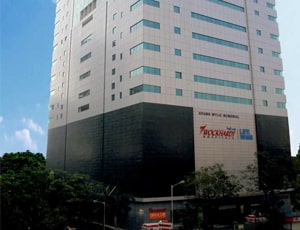
Types of Deep Brain Stimulation in Wockhardt Hospital - A New Age Hospital and its associated cost
| Treatment Option | Approximate Cost Range (USD) | Approximate Cost Range (INR) |
|---|---|---|
| DBS (Overall) | 15250 - 35636 | 1249142 - 2919977 |
| Subthalamic Nucleus (STN) | 10167 - 25433 | 835942 - 2076449 |
| Globus Pallidus Internus (GPi) | 12165 - 28355 | 1000553 - 2338016 |
| Ventral Intermediate Nucleus (VIM) | 15156 - 35558 | 1250025 - 2903463 |
DOCTORS IN 12 SPECIALITIES
FACILITIES & AMENITIES
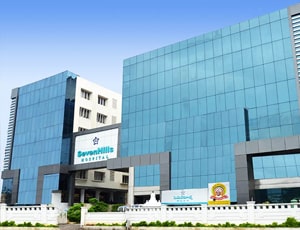
Types of Deep Brain Stimulation in Seven Hills Hospital and its associated cost
| Treatment Option | Approximate Cost Range (USD) | Approximate Cost Range (INR) |
|---|---|---|
| DBS (Overall) | 16662 - 40081 | 1381993 - 3250685 |
| Subthalamic Nucleus (STN) | 11373 - 28443 | 904056 - 2328357 |
| Globus Pallidus Internus (GPi) | 13249 - 32199 | 1094906 - 2554973 |
| Ventral Intermediate Nucleus (VIM) | 17226 - 39920 | 1400978 - 3229245 |
DOCTORS IN 11 SPECIALITIES
FACILITIES & AMENITIES
Deep brain stimulation (DBS) is a neurosurgical procedure that involves the implantation of electrodes within the specific targeted areas of the brain. It is used to treat a variety of disabling neurological symptoms.
Deep brain stimulation uses a neurostimulator, commonly referred to as a deep brain stimulator, to deliver electrical stimulation to targeted areas in the brain that control movement.
The impulse sent by the deep brain stimulator interferes with and blocks the electrical signals that cause tremors and other Parkinson’s disease symptoms. The targeted areas most often include the thalamus, subthalamic nucleus, and globus pallidus. Deep brain stimulation procedure has a long history of research. It was first introduced in 1987 and The Food and Drug Administration (FDA) approved deep brain stimulation treatment for essential tremor and Parkinson's disease in 1997.
A pacemaker-like device inserted under the skin in the upper chest regulates the amount of stimulation during deep brain stimulation. The electrodes in the brain are connected to this device by a wire that passes beneath the skin.
Deep brain stimulation treatment has proven effective in most cases, but it could potentially result in serious complications and side effects. This is the main reason why deep brain stimulation treatment is used only for patients whose symptoms are not appropriately controlled with medications.
During the deep brain stimulation therapy, the neurosurgeon first uses an MRI or computed tomography CT scan to identify the exact target within the brain where electrical nerve signals generate the symptoms. Some doctors may use microelectrode recording (a small wire that observes the activity of nerve cells in the target area) to more specifically and precisely identify the target in the brain that will be stimulated during the treatment.
After identifying the targets in the brain, there are several ways in which the permanent electrodes are placed into the target areas. The patient is given a local anesthetic before the procedure, and then the neurosurgeon implants the electrode by making small holes in the skull. The implanted electrodes are connected with extensions (a thin insulated wire) connected with the stimulator. These extensions are passed by some incisions under the skin of the head, neck, and shoulder. A deep brain stimulator is a battery-operated medical device similar to a heart pacemaker. It is implanted under the skin near the collarbone or in the chest.
The surgeon schedules a time to program the generator a few weeks following surgery. The generator continuously pulses electricity into the brain once it has been programmed. With the help of a specialized remote control, the Patient may operate the generator and switch it on or off.
Ask your healthcare adviser for the best multiple options and choose the one that meets your expectations
The cost of Deep Brain Stimulation in India starts from USD$ 25000. Deep Brain Stimulation in India is available across many hospitals in different states.
The cost of Deep Brain Stimulation in India may differ from one medical facility to the other. The top hospitals for Deep Brain Stimulation in India covers all the expenses related to the pre-surgery investigations of the candidate. The Deep Brain Stimulation cost in India includes the cost of anesthesia, medicines, hospitalization and the surgeon's fee. Extended hospital stay, complications after the surgery or new diagnosis may affect the overall cost of Deep Brain Stimulation in India.
There are many hospitals that perform Deep Brain Stimulation in India. Some of the most renowned hospitals for Deep Brain Stimulation in India include the following:
After discharge from the hospital, the patient has to stay for another 21 days in the country for complete recovery. During this time, the patient undergoes medical tests and consultations. this is to ensure that the treatment was successful and the patient us safe to return.
India is considered to be one of the best places for Deep Brain Stimulation in the world. This is because of the availability of some of the best doctors, advanced medical technology and good hospital infrastructure. However, some of the other popular destinations for Deep Brain Stimulation include the following:
There are certain additional cost that the patient has to pay apart from the Deep Brain Stimulation cost. These include the cost of accommodation and meals outside hospital. The per day cost in this case may range around USD$ 25.
Deep Brain Stimulation in India is offered in almost all metropolitan cities, including the following:
The patient has to spend about 2 days in the hospital after Deep Brain Stimulation for proper recovery and to get clearance for discharge. During the recovery, the patient is carefully monitored and control tests are performed to see that everything is okay. If required, physiotherapy sessions are also planned during recovery in hospital.
The average rating for Deep Brain Stimulation hospitals in India is 4.2. This rating is calculated based on several parameters such as hygiene, politeness of staff, infrastructure and quality of services.
There are about 51 Deep Brain Stimulation hospitals in India that are best known for their services. These hospitals are approved to perform the surgery and have proper infrastructure to handle Deep Brain Stimulation patients.
Deep Brain Stimulation in India is a top choice for many patients from all over the world because of the cheaper costs of the treatment as compared to those in western countries. On top of that, one can find the best DBS surgeons in India who are internationally trained professionals and have undertaken countless cases of Deep Brain Stimulation.
Patients travel from overseas to India for Deep Brain Stimulation as the western countries charge way too much for the surgery as compared to Indian cost of DBS. Some of the patients have some other reasons as well for choosing India for DBS such as unavailability of good hospitals or lack of advanced technology, etc. These are few of the many notable reasons why patients from outside the country opt for DBS in India.
One can easily take advantage of the Indian Medical Industry which boasts of holistic hospitals, health experts and modern technology at a very low price tag. Such prominent recognition that India has received in its medical field is due to its emergence as the one-stop destination offering cost-effective medical care along with surgical and therapy practices.
The cost of Deep Brain Stimulation surgery is highly economical as opposed to western territory. To be more specific, the approximate cost of DBS in India is 60 to 90 per cent cheaper than the other parts of the world. It is one of the many significant reasons why foreign patients choose India over the other fully developed countries.
Although one can find countless number of highly-qualified neurologists in India for the surgery of Deep Brain Stimulation, some of the topmost and reputed DBS neurologists are as follows –
Dr Sumit Goyal
Having his MD in Internal Medicine and Medical Oncology, Dr Sumit Goyal has more than a decade of experience in the field of neurology.
Dr SK Sogani
Dr SK Sogani is an MS in General Surgery and Neurosurgery which he has done from the most renowned hospital of India AIIMS. From AIIMS again, he did his super specialization in neurosurgery and now has more than two decades of expertise in neurology.
Dr Alok Gupta
Having done his Masters in Internal Medicine, Dr Alok Gupta completed his DM in Medical Oncology from Mumbai. He also has more than a decade of experience in the neurological field.
With the help of advanced neurology hospitals along with modern technology and extremely professional neurosurgeons, Deep Brain Stimulation in India exhibits a high success rate. In India, the patients are treated with utmost care and under the supervision of very qualified neurosurgeons holding a rich experience in their area of expertise.
many high-class hospitals in India make use of state of the art technology to treat the patients, such as Biplane, Neuroendovascular Angiography, Endoscopic Neurosurgery Theatre, 256 Slice CT Scan, 3 Tesla MRI, Brain Suite, Synergy S Linac System, PET Scan, S-7 Navigation System, etc
There are many cities in India where one can get the best surgery for Deep Brain Stimulation. However, the best cities that you can blindly trust to get exceptional DBS surgery are Gurgaon, Bangalore, Mumbai, Noida, and Delhi.
Deep Brain stimulation is surgery or rather a procedure where a medical device called a neurostimulator is placed in the body of the human. The neurostimulator device that is placed in the body is often called a brain pacemaker. Dbs surgery recovery time is also quite less. The brain pacemaker is almost the same as how a heart pacemaker works. The deep brain stimulation cost in India varies with the grade of the device that is used in the surgery. The deep brain stimulation cost in India is justified when you think of the procedure itself. The brain pacemaker is implanted into the patient under the skin of the patient near the upper chest area. The sheer complexity of this type of implantation surgery is enough to justify the deep brain stimulation cost in India. Also, there is a wire that will travel from this device and then connect to the electrodes in the brain of the patient. This treatment is used to treat many neurological conditions such as :
Many people look at the deep brain stimulation cost in India and start wondering if the surgery will be successful if it is performed in India. The main thing that should be considered is that India is a developing country. Because of this, the deep brain stimulation cost in India is affordable, not only to the people who are living in India, but also people who are coming here from abroad countries to have this surgery.
The DBS surgery cost in India has nothing to do when it comes to the amount of care and the number of services that the Indian hospitals and doctors have to offer. People will get the same quality care, and the Dbs surgery recovery will be the same if it was performed in other expensive places also. Indian surgeons have practiced all around the world and have enough experience in the field that is needed to make deep brain stimulation surgery successful. The amount of expertise among the doctors are extremely high and worth mentioning. The post-operation treatment and care rendered to the patients are quite impressive.
Some very highly accredited hospitals in India like the Artemis Hospital situated in Gurgaon, the Columbia Asia hospital in Yeshwanthpur located in the metro city of Bengaluru, the Global health city in Chennai, in the state of Tamil Nadu, are the leading places for the deep brain stimulation surgery as well as the DBS surgery recovery. Considering that these hospitals have completed the deep brain stimulation surgery for a large number of people abroad and from India, the deep brain stimulation cost in India in these hospitals are kept quite affordable to the general public.